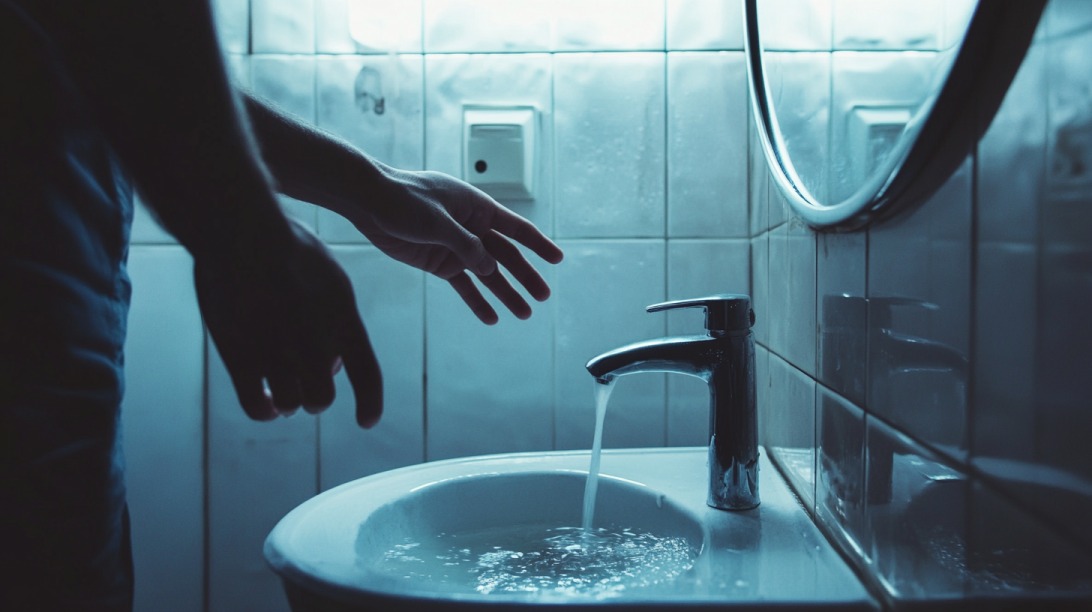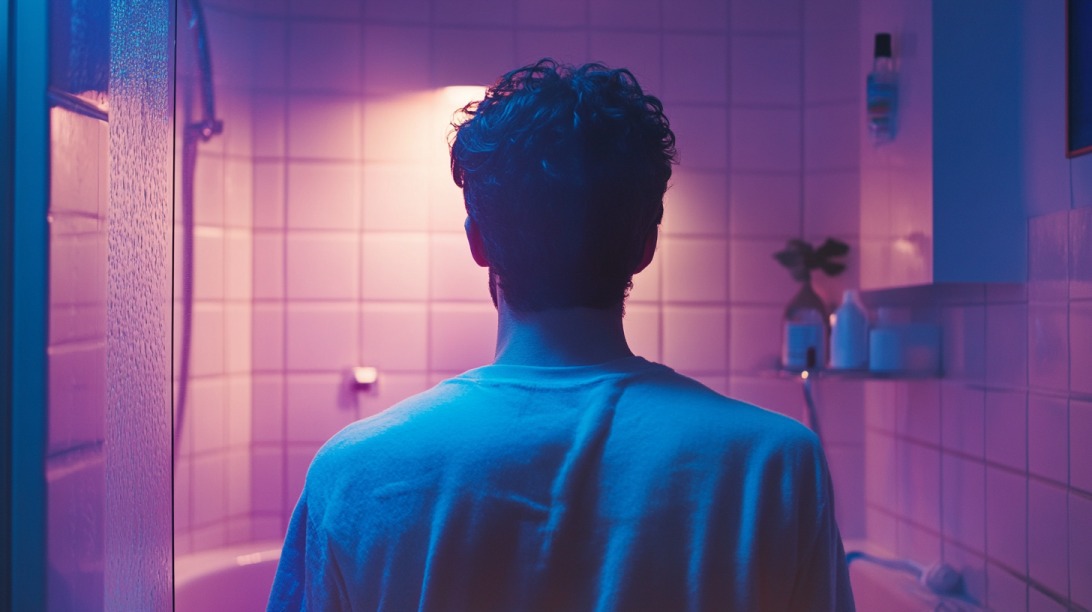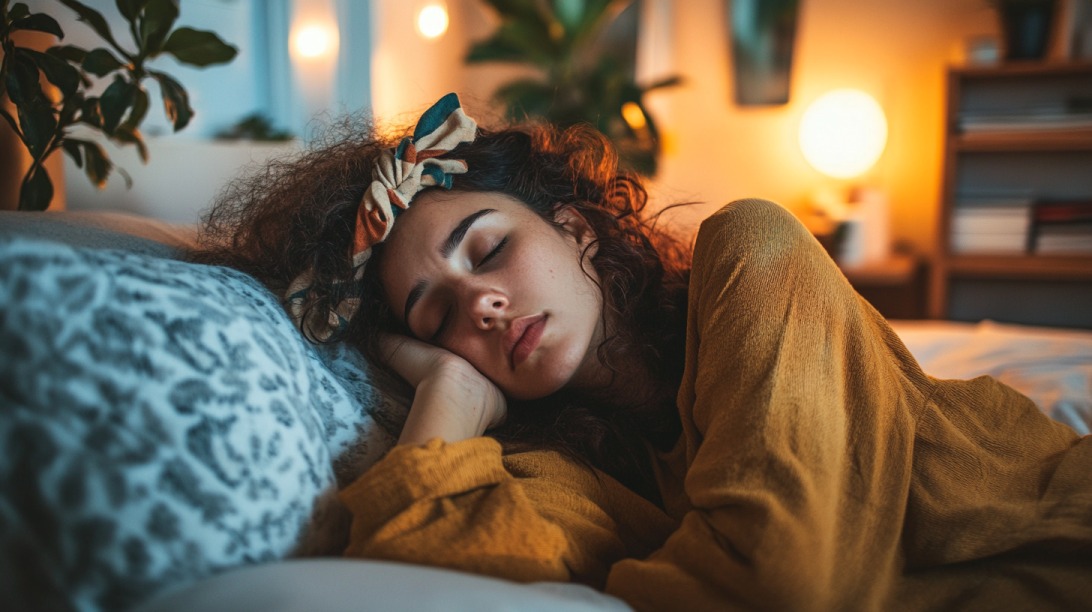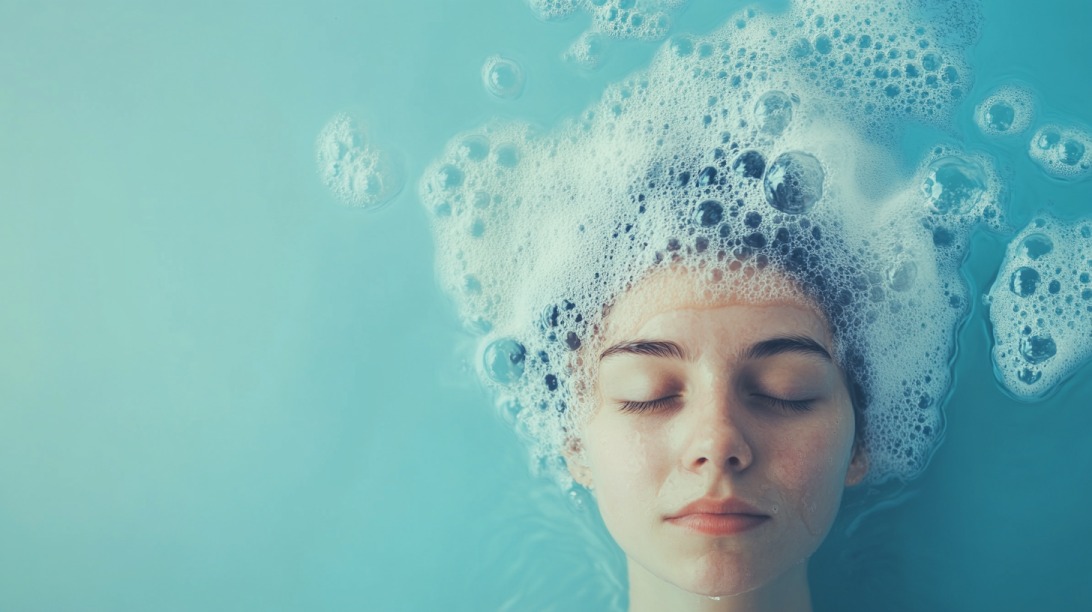Anxiety disorders are defined as mental health conditions characterized by excessive fear, worry, and behavioral disturbances.
In 2019, anxiety affected approximately 301 million people globally, making it the most prevalent mental disorder worldwide, according to the World Health Organization (WHO).
Symptoms may include persistent nervousness, irritability, restlessness, and a heightened state of physical tension. Despite its widespread presence, only one in four individuals struggling with anxiety actually receives treatment.
Untreated anxiety can have a profound influence on daily functioning, including tasks that are usually taken for granted, such as brushing teeth, taking a shower, or maintaining grooming routines.
The Link Between Mental Health and Physical Habits
Mental health and physical behavior share a direct and ongoing relationship. Chemical activity in the brain drives thoughts, emotions, and choices.
When anxiety disorders interfere with neurotransmitter function, specifically serotonin, dopamine, norepinephrine, and GABA, daily habits often break down.
These neurotransmitters are not only involved in mood regulation but also influence motivation, reward, concentration, and physical energy.
When anxiety becomes chronic, the body endures symptoms that feel both relentless and exhausting. Over time, these symptoms drain physical resources and make ordinary routines difficult to sustain.

- Persistent fatigue, even after rest
- Muscle tightness or physical tension
- Gastrointestinal issues, such as nausea or cramps
- Disrupted sleep, often involving trouble falling or staying asleep
Each of these symptoms gradually lowers the capacity to maintain a stable routine.
Motivation suffers heavily under the weight of persistent anxiety. Constant mental noise and intrusive thoughts interrupt the ability to focus on simple tasks.
Mental bandwidth becomes limited, and small tasks begin to feel like massive hurdles.
Loss of structure is often visible through skipped showers, unbrushed teeth, or unchanged clothes.
A pattern of avoidance builds, reinforced by the anxiety itself. Routine behaviors that once felt automatic now require deliberate effort. Psychological fatigue mixes with physical weariness to create a cycle of neglect.
Self-care declines further as frustration sets in. A person may recognize the need to bathe or clean, yet feel unable to act.
Thoughts like “What’s the point?” or “I can’t deal with this right now” replace productive intentions. A reinforcing loop emerges where poor hygiene leads to shame, which intensifies anxiety, leading to further avoidance.
Core Hygiene Challenges Stemming from Untreated Anxiety
Anxiety not only affects thoughts and emotions, it extends into the body, behavior, and daily routine.
One of the most overlooked yet impactful consequences of untreated anxiety involves disruptions in hygiene.
Tasks considered standard or automatic for many become difficult, distressing, or altogether neglected.

Neglect of Routine Activities
Daily self-care actions like brushing teeth, showering, and changing into clean clothes often fall by the wayside for individuals struggling with untreated anxiety.
Fortunately, the consequences of neglecting dental hygiene are possible to overcome. If you need help with that, visit this site.
What may seem like simple routines become burdensome tasks that feel emotionally draining.
Anxiety creates internal resistance through avoidance. Mental exhaustion reduces the capacity to perform tasks that require decision-making, planning, or physical effort.
Small acts of neglect build up over time and eventually unravel basic routines. Anxiety-driven avoidance intensifies, making even the idea of getting out of bed feel like a monumental task.
- Going days without brushing teeth or showering
- Wearing the same clothes repeatedly
- Skipping basic grooming tasks like hair brushing or nail trimming
- Letting laundry and hygiene-related chores pile up
Sleep Disruption and Fatigue

Sleep problems frequently arise in those suffering with anxiety. Racing thoughts, hypervigilance, or physiological arousal often prevent restful sleep.
Insomnia becomes a nightly struggle, leading to chronic sleep deprivation and morning exhaustion.
Fatigue reduces both physical energy and mental stamina. When every move feels effortful, hygiene tasks become a low priority. What was once an automatic morning shower might be postponed indefinitely.
Over time, the decline in hygiene begins to affect how individuals perceive themselves, adding shame to their fatigue and further draining their will to act.
- Skipping morning routines due to poor sleep
- Avoiding hygiene tasks out of pure exhaustion
- Declining self-perception due to visible signs of neglect
- Reduced motivation linked to overwhelming tiredness
Heightened Sensory Sensitivity
Many people with anxiety experience an amplified response to sensory input. Sounds feel louder, fabrics feel scratchier, and temperatures become intolerable.
For someone hypersensitive to touch or smell, the texture of shampoo, the scent of soap, or the chill of post-shower air can feel unbearable.
What should feel refreshing or neutral instead becomes a sensory overload.
- Avoidance of showers due to discomfort with water temperature or pressure
- Refusal to wear certain clothes because of irritating fabrics
- Strong aversions to cleaning products with strong smells
- Overwhelm caused by hair-washing or nail-clipping sensations
Obsessive or Compulsive Behaviors
Anxiety doesn’t always lead to neglect. In some cases, it sparks hypervigilant behaviors that create another form of distress.
Excessive hand-washing, prolonged grooming, or repeated bathing rituals may emerge as compulsive coping mechanisms.
These behaviors are often rooted in an attempt to regain control. Cleanliness becomes a focus, not for comfort, but as a strategy to soothe underlying distress.
For others, hygiene becomes so emotionally entangled that they freeze and avoid it altogether.
- Repeating hygiene routines multiple times a day
- Fixating on cleanliness to manage intrusive thoughts
- Avoiding hygiene entirely due to overwhelming mental pressure
- Cycling between over-washing and not washing at all
Secondary Effects of Poor Hygiene
Neglecting hygiene routines triggers a cascade of consequences that affect physical health, social life, and emotional stability.
Hygiene is not simply a cosmetic concern, it plays a central role in maintaining overall health and well-being. When daily habits begin to deteriorate, the effects reach far beyond skin-deep.
On a physical level, the body becomes more vulnerable to infections and chronic conditions.
Poor hygiene can lead to immediate and visible issues as well as long-term health complications.
- Increased risk of infections due to bacterial buildup on the skin and in the mouth
- Dental problems, such as cavities, plaque buildup, and gum disease caused by neglecting oral care
- Skin irritation, clogged pores, and conditions like dermatitis or fungal infections from infrequent bathing
- Body odor and persistent discomfort from not changing clothes or cleaning regularly

Social and professional spheres are equally affected. A person who appears unkempt or smells unpleasant may face judgment, ridicule, or outright rejection.
In environments where first impressions matter, a lack of grooming can limit opportunities.
- Isolation as friends and acquaintances withdraw or avoid contact
- Embarrassment and shame in public spaces often lead to further avoidance
- Discrimination or exclusion in professional settings, where appearance may influence credibility
- Decreased performance due to lowered confidence or distraction caused by negative self-perception
Emotionally, the damage compounds over time. Personal hygiene is closely tied to identity, pride, and self-respect.
When it slips, a person’s sense of worth may follow. Every skipped shower or missed brushing reinforces feelings of failure, amplifying the anxiety.
Why Anxiety Often Goes Untreated
Untreated anxiety is rarely about lack of willpower. More often, barriers keep individuals stuck. These barriers range from emotional stigma to practical access issues.
Many still feel guilt or shame for experiencing anxiety, believing it reflects personal weakness.
One major reason treatment is delayed or avoided is stigma. Social narratives often dismiss mental health concerns or label them as exaggerated.
Instead of seeking help, individuals may hide symptoms, fearing judgment.
- Stigma and shame, which discourage honest conversations about mental health
- Lack of access, such as absence of nearby therapists or insufficient mental health coverage
- High cost, making therapy or medication financially unreachable for many
- Misconceptions about anxiety, where people assume it’s untreatable or part of their personality
Some people don’t even realize they need treatment. Lifelong anxiety can feel like a normal part of existence, especially when family or cultural environments never acknowledged it.
Long-standing symptoms are seen as quirks or personal flaws rather than clinical signs.
The Bottom Line
Untreated anxiety disrupts more than emotions. It impairs daily functioning, erodes motivation, and breaks down self-care routines—especially hygiene. Tasks like brushing teeth or bathing become overwhelming or are replaced by compulsive habits.
Addressing mental health openly is essential. Increasing awareness, reducing stigma, and building supportive environments help individuals reclaim their routines and rebuild their well-being. Hygiene should not be the silent victim of unspoken mental pain. Prioritizing treatment helps restore balance to both mind and body.

